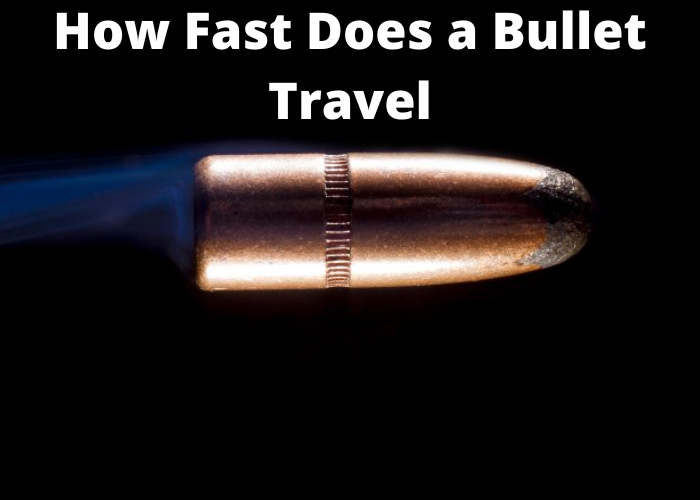A bullet can travel up to 3,000 feet per second. For comparison, the fastest a human can run is about 20 mph. That means that a bullet can travel across a football field in less than three seconds. Bullets are incredibly fast and deadly projectiles that need to be handled with care. In this blog post, we will explore the speed of bullets and discuss some of the dangers associated with them. Stay safe and keep your distance from firearms!
Bullets Travel Incredibly Fast and Can Cause a Lot of Damage
Bullets travel incredibly fast, and that speed is what gives them the power to cause so much damage. When a bullet hits something, it transfers all of its energy to that object. That can lead to shattering glass, piercing flesh, or even penetrating the metal. The faster the bullet is moving, the more damage it can cause. That’s why it’s so important for gun owners to store their weapons safely and keep them out of the reach of children. Bullets may not seem dangerous, but they can certainly cause a lot of destruction. Mishandled.
The Speed of a Bullet Depends on the Gun It’s Fired From
Bullet travel speed is affected by a number of factors, the most important of which is the gun it’s fired from. Barrel length, rifling, and powder charge all contribute to the muzzle velocity or the speed at which the bullet leaves the barrel. In general, longer barrels result in higher muzzle velocities, as there is more time for the powder to burn and build up pressure. Rifling, or the spiral grooves cut into the barrel, also plays a role in bullet travel speed. As the bullet rotates, its gyroscopes or stabilizes itself, making it less likely to tumble in flight. This increases its accuracy and allows it to travel further and faster. Finally, the type and amount of powder used affect bullet travel speed. Heavier bullets require more powder to achieve the same velocity as lighter bullets. So, when choosing a gun, be sure to consider all of these factors to ensure that you’re getting the best possible performance.
Bullet Travel Time Also Depends on the Distance Between the Gun and the Target
Bullet travel time also depends on the distance between the gun and the target. If the bullet is traveling a longer distance, it will take more time to reach the target. Similarly, if the bullet is traveling a shorter distance, it will take less time to reach the target. The distance between the gun and the target, therefore, affects the travel time of the bullet. In addition, the type of gun and bullet also affect travel time. A rifle bullet will travel faster than a pistol bullet, and a larger bullet will travel faster than a smaller bullet. The speed of the bullet is also affected by air resistance. A bullet traveling through dense air will experience more resistance and will slow down more quickly than a bullet traveling through less dense air. All of these factors must be taken into consideration when calculating the travel time of a bullet.
Bullet Trajectory Can Be Affected by Wind Speed and Direction
When a bullet is fired, it will travel in a relatively straight line until it hits its target. However, there are a number of factors that can affect the bullet’s trajectory, including wind speed and direction. If the wind is blowing from the side, it can push the bullet off course. Similarly, if the wind is blowing in the same direction as the bullet, it can increase the bullet’s velocity and cause it to travel further than expected. In addition, wind speed can also affect how well the bullet maintains its trajectory. A strong wind can cause the bullet to lose stability and veer off course. Conversely, a gentle breeze may have little effect on the bullet’s path. As a result, wind speed and direction are important considerations when aiming for a gun. By taking these factors into account, shooters can improve their accuracy and hit their targets more consistently.
Bullet Wounds Can Be Incredibly Dangerous and Even Fatal
Bullet wounds can be incredibly dangerous and even fatal. The velocity at which a bullet travels can cause extensive damage to the body, and in some cases, the bullet can even shatter bone. In addition, bullet wounds can lead to internal bleeding and organ damage. In some cases, the bullet can also become lodged in the body, making it difficult for emergency responders to remove it. As a result, bullet wounds can be extremely serious and should be treated immediately.
Conclusion:
Bullets fly through the air faster than you might think. That’s more than twice the speed of sound! So what does this mean for you and your shooting accuracy? It means that you need to take into account not only the distance between you and your target but also the wind speed if you want to be successful in hitting your mark.

